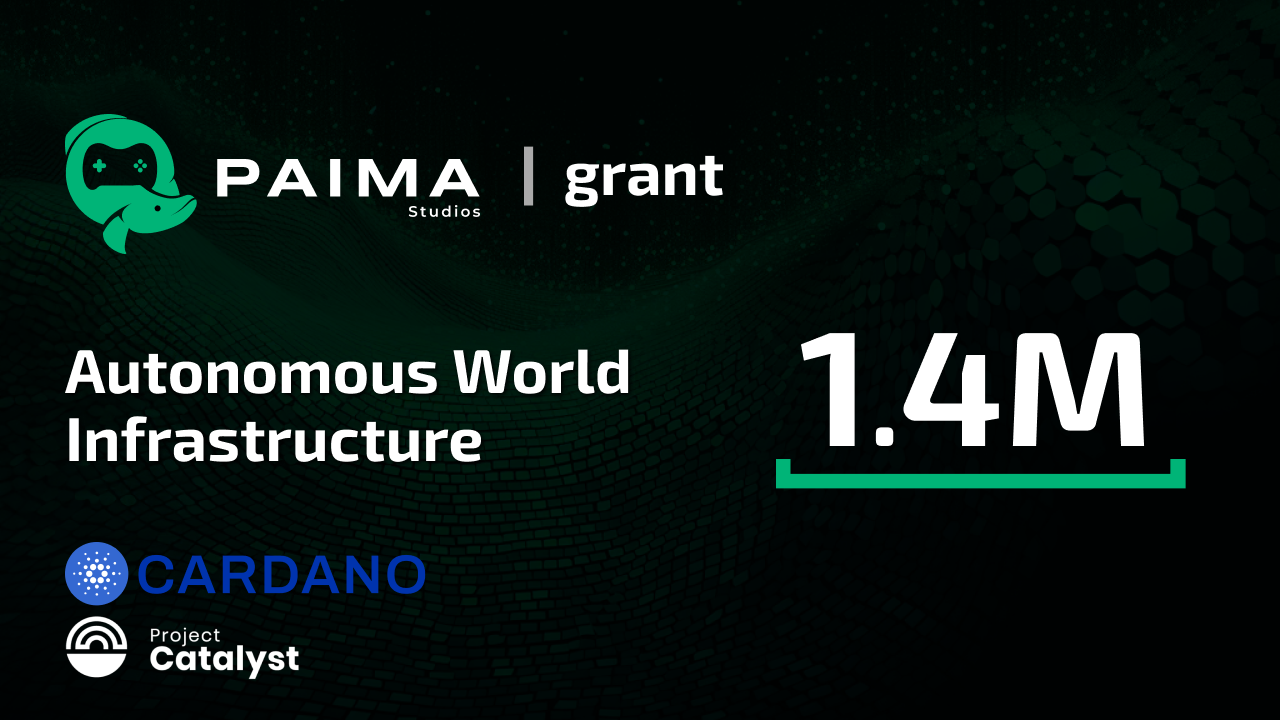
Paima Engine, the world’s largest rollup framework for creating onchain games, gamification and autonomous worlds, has received a grant equivalent to 1.4M USD from the Cardano blockchain. Cardano is the 5th largest cryptocurrency by market capitalization, and has an on-chain treasury currently holding 350M USD in funds which it distributes based on a private (ZK) voting system where all Cardano holders vote on how to spend the treasury funds. To celebrate the announcement, Paima's source code has been made available publicly on Github.
What is Paima Engine
Paima Engine is the world’s largest rollup framework for onchain games, gamification and autonomous worlds.
While many attempts at creating onchain games exist, they are historically done by reusing infrastructure originally optimized for DeFi and not gaming (such as EVM L2s). These tools not only struggle to scale enough for games, but also increase these development costs and risks.
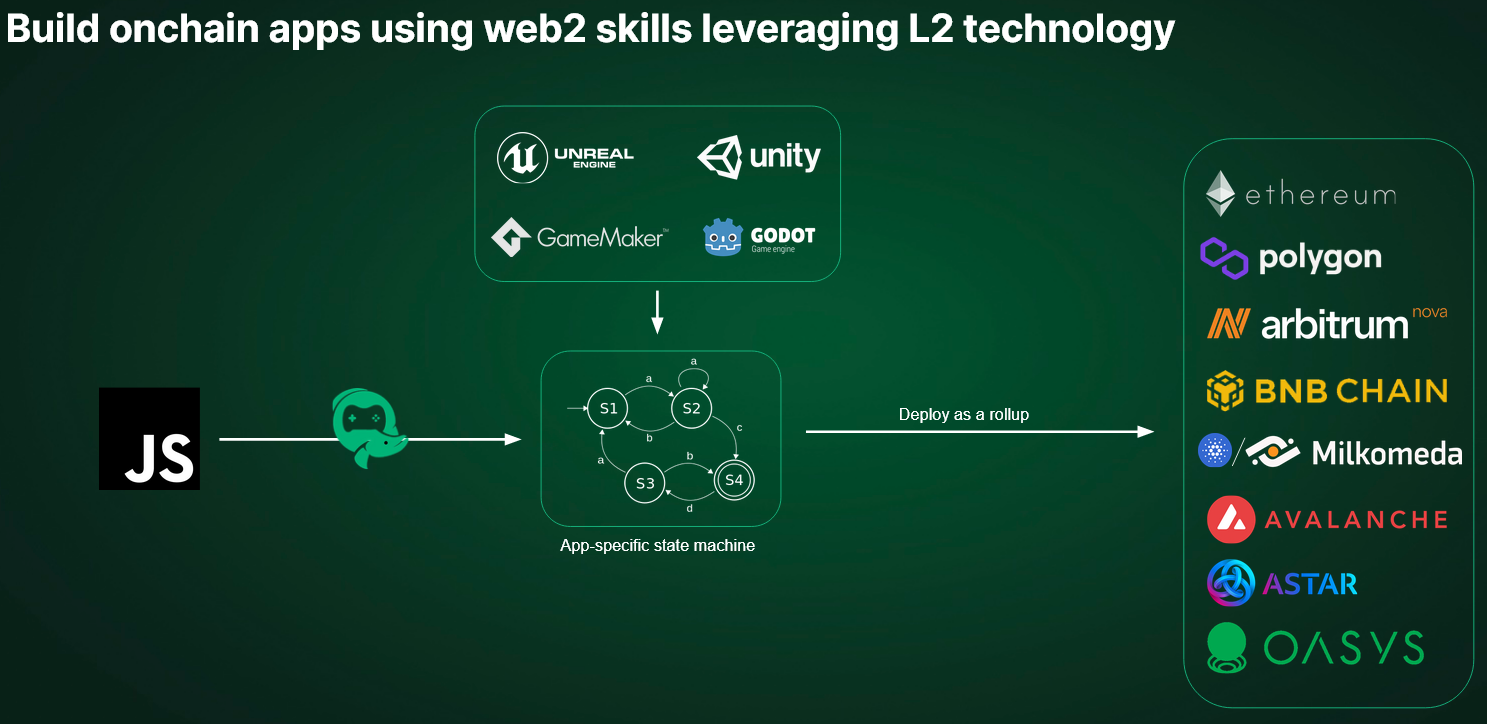
Paima, on the other hand, has built a custom frameworks optimized for the task, allowing developers to create their app in just days using Web2 skills like Javascript, and deploying these as app-specific L2s that are non-custodial - meaning no bridge, centralized party or session keys are required to play the games.
This has made Paima extremely attractive for NFT projects looking to gamify their brand, as they can easily experiment building multiple games in a month for a fraction of the historical cost, and connect these to their NFT collection without fear of brand damage in case of a bug.
Paima already features a growing ecosystem with multiple onchain games live today, with many more being built.
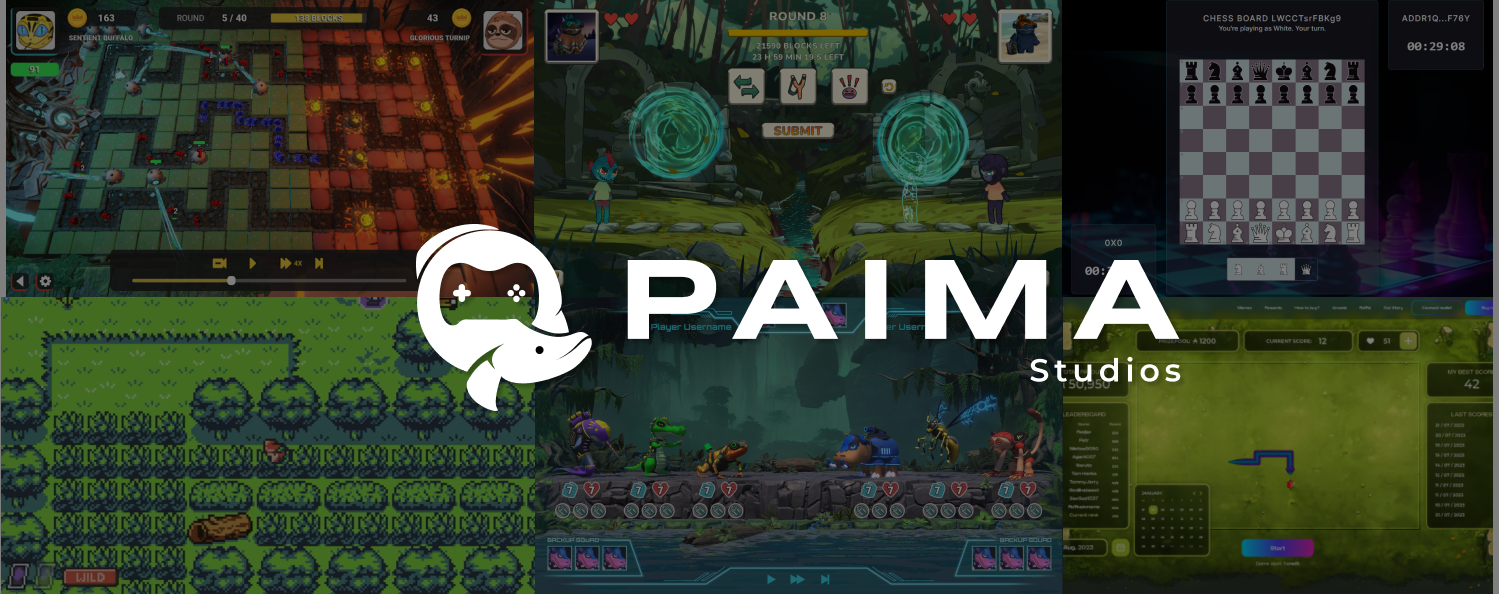
What are Autonomous Worlds
Autonomous Worlds, a concept prevalent in the onchain gaming community, refers to a world where individuals are both inhabitants and creators with no privileged centralized actor controlling the game world.
This idea is grounded in the blockchain technology where all elements of a game are decentralized, typically by placing it onchain. This facilitates a transparent and dynamic ecosystem governed by clear rules. It fosters innovation by allowing users to build upon existing structures, encouraging a collaborative and immersive gaming experience. The concept represents the future of gaming, promising a landscape rich with community-driven modifications and developments.
Paima, by enabling enabling developers to build custom environments optimized for their specific needs, is the first frameworks to scale to the level of autonomous worlds, as seen for example with Tarochi - and onchain RPG being built with Paima that features a full world including villagers, quests and a wide variety of monsters to catch without depending on any centralized server.
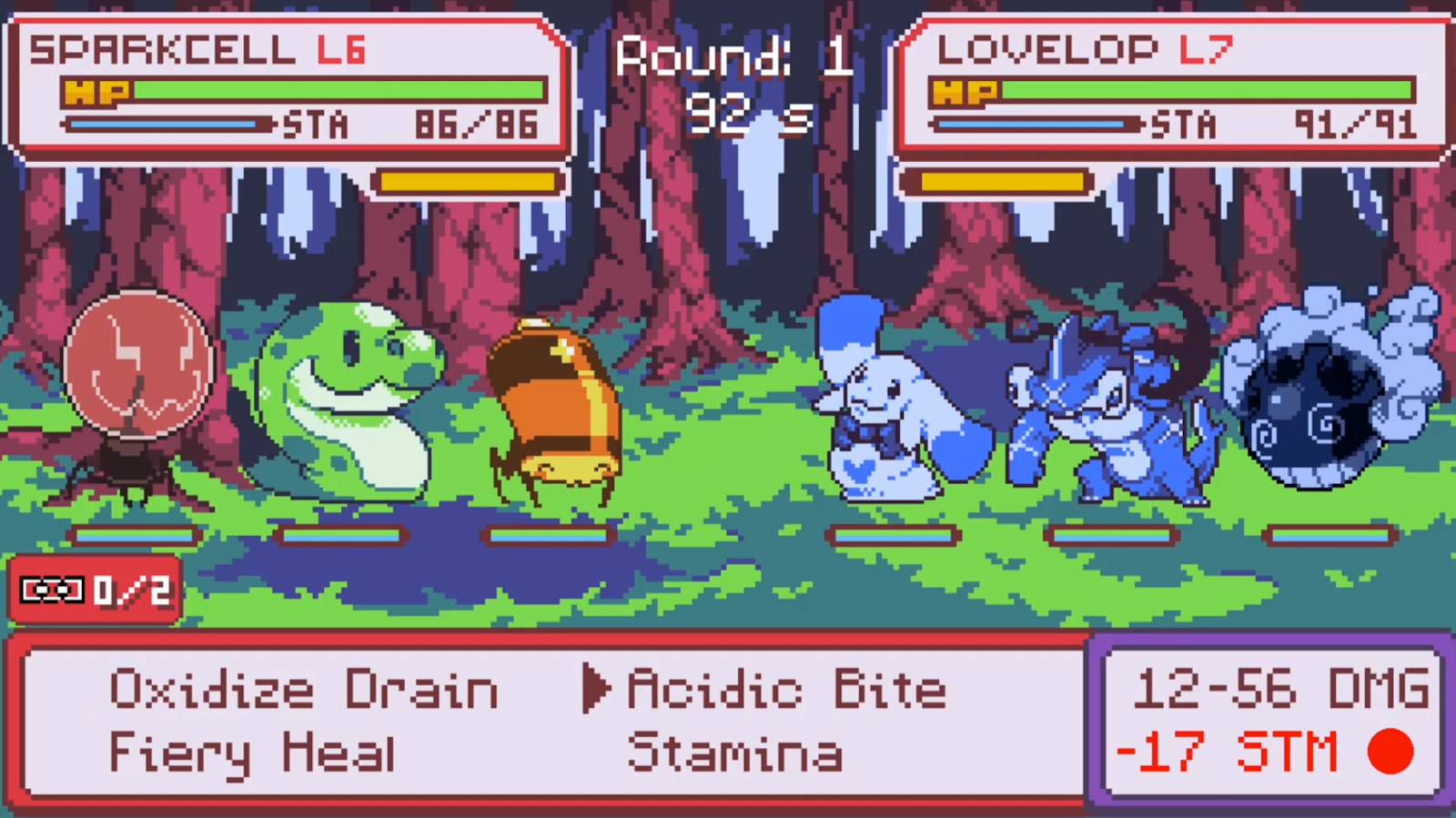 | 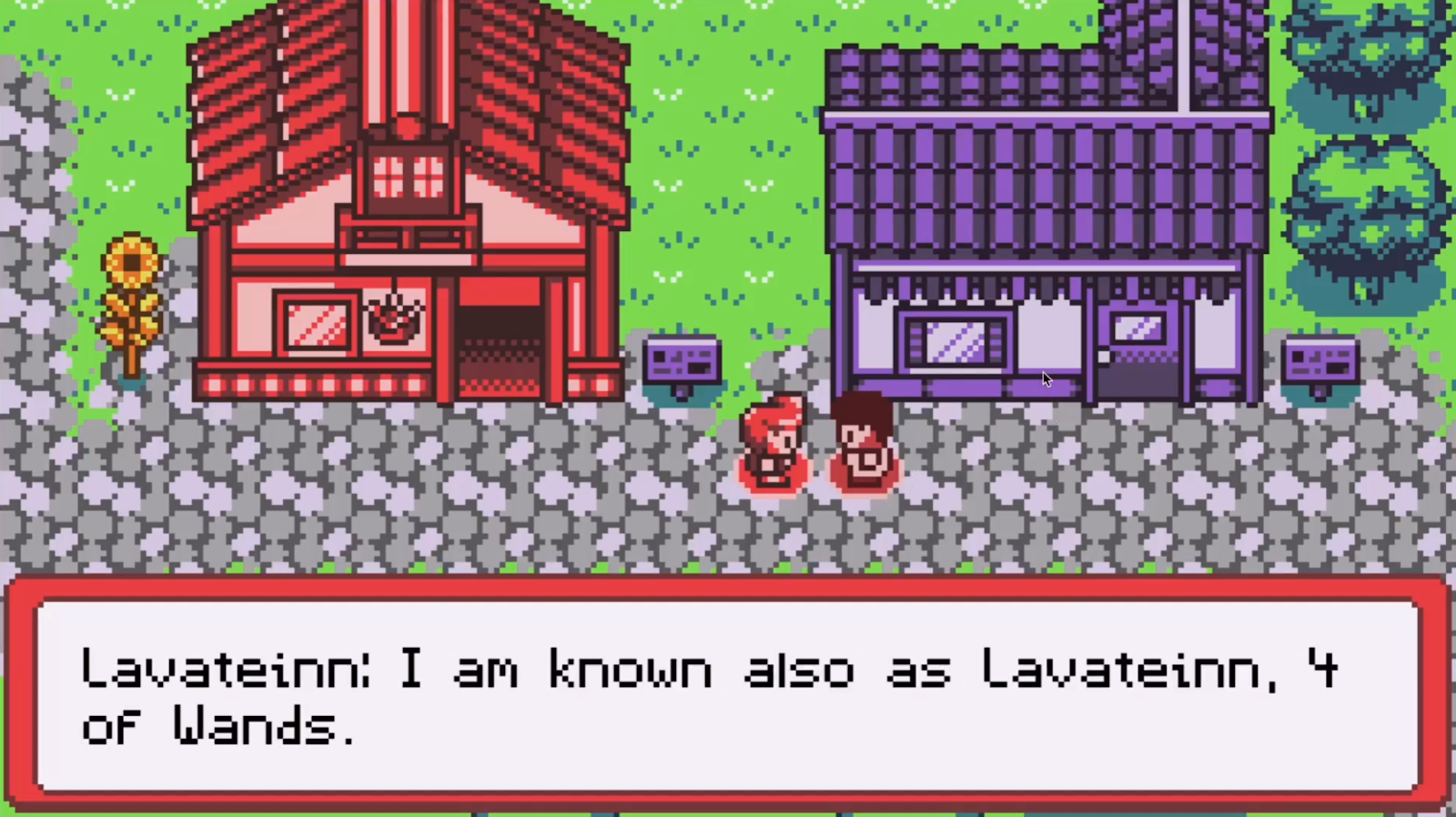 |
|---|---|
| Tarochi battle | Tarochi first city |
Onchain games and autonomous world are one of the fastest growing segments of Web3, with nearly 50M USD in venture capital funding going to autonomous world startups in the past few months.
What is Cardano, and why is it investing in autonomous worlds?
Cardano is one of the largest public blockchains in the world (#5 in market cap at time of writing) founded in Osaka Japan.
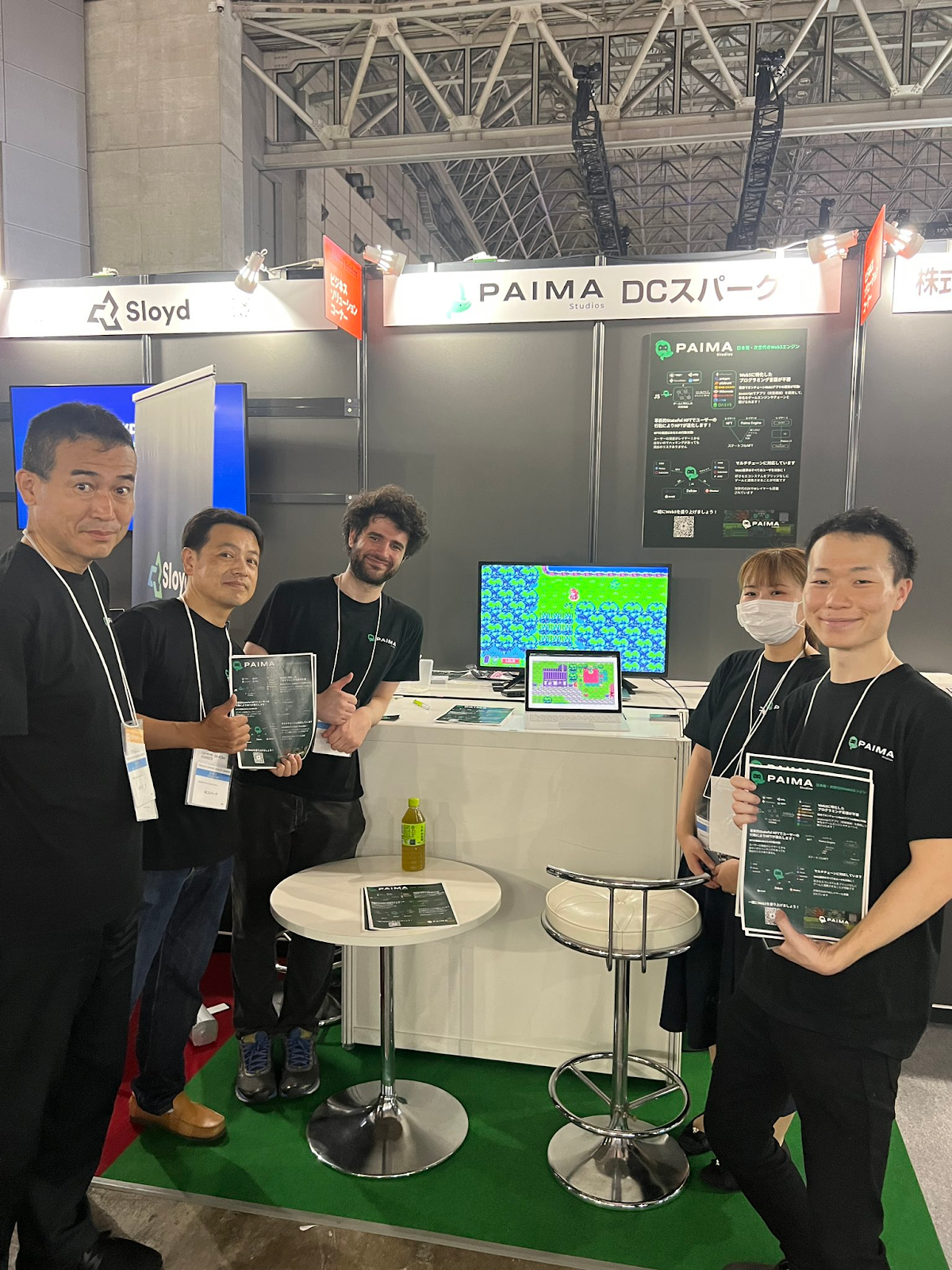 | 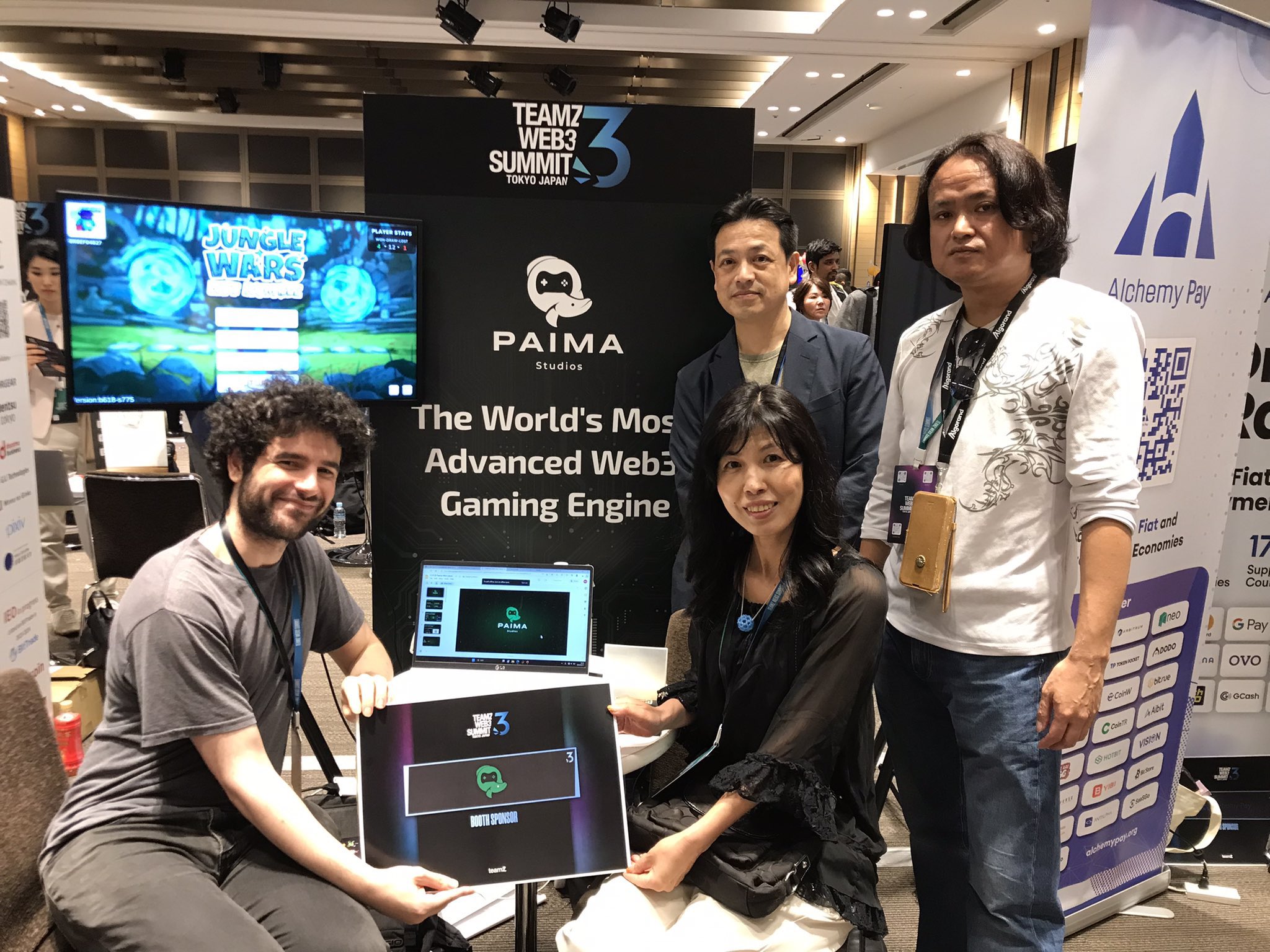 | 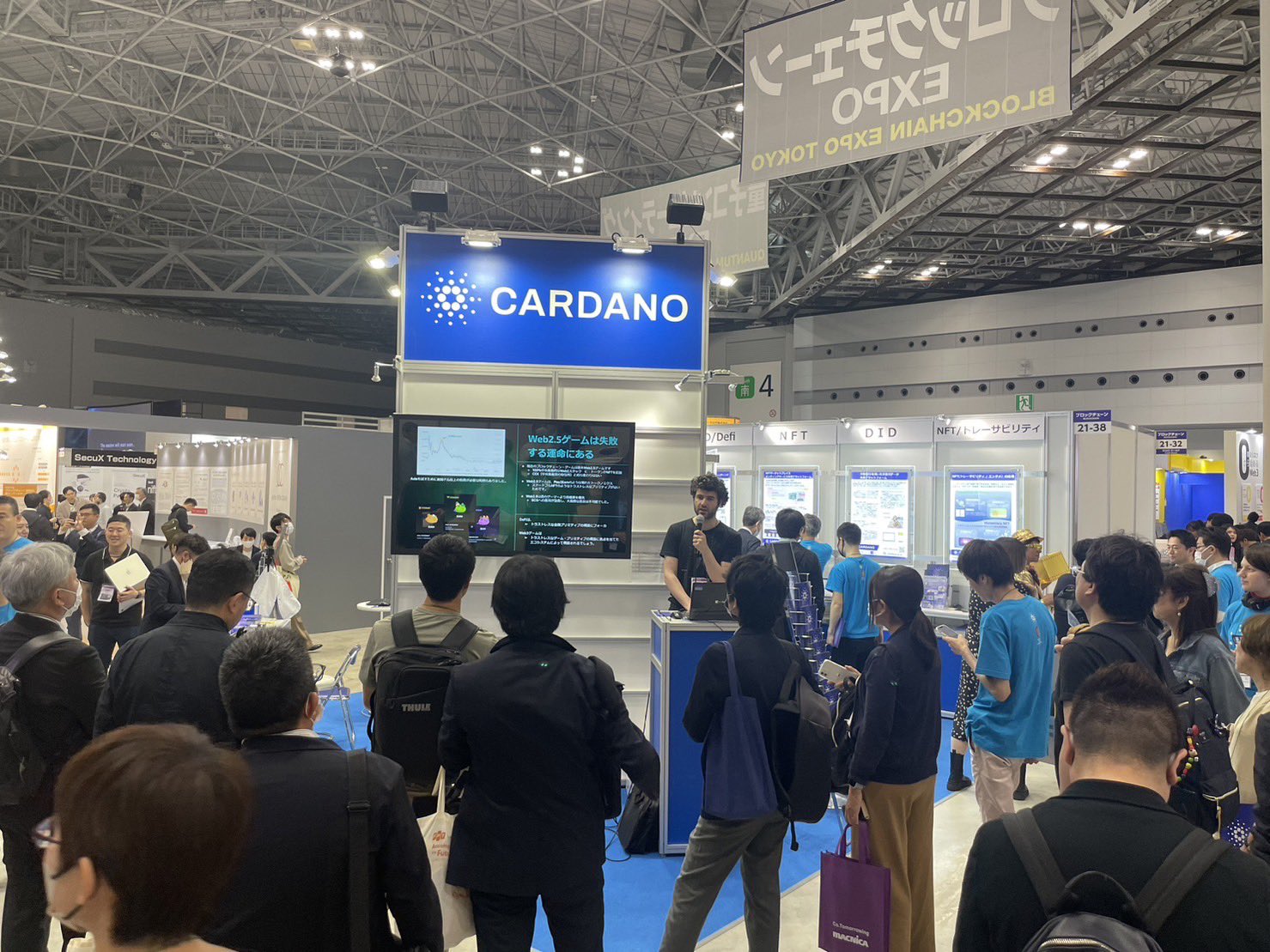 |
|---|---|---|
| Paima booth at the Tokyo Game Show 2023 | Paima booth at Teamz Web3 Summit in Tokyo | Paima at the Japan Blockchain Expo |
Although Paima is a multichain framework targeting EVM chains, Many projects and Paima users come from the Cardano ecosystem given its size as well as its retail-heavy user base that has sustained its NFT ecosystem. Although Cardano is not an EVM chain, it does have an EVM layer called Milkomeda. Both Milkomeda and Paima come with account abstraction support to allow Cardano users to access the platforms, and this support plans to be extended as part of the grant.
We believe that Cardano’s passion for decentralized systems, its strong NFT ecosystem and its large retail user base makes it a strong contender to be a leader in the fast-growing Autonomous World ecosystem, and this was validated through the Cardano community’s support for the Paima grant proposals.
How was the grant selected?
Cardano has an onchain treasury funded by a 20% tax on all transaction fees on the chain. This treasury, historically, is used to fund a program called Catalyst that allows all ADA voters to decide on how to allocate a budget that typically ranges around 10M USD equivalent every few months. Votes are done on a 1 ADA → 1 vote basis (not 1-person 1-vote).
The votes are encrypted using zero-knowledge cryptography such that you cannot know who voted for which proposal. You can, however, know the total number of ADA support a proposal has received, as well as the total number of people that voted for it.
From this, we can see that Paima Studios not only won the ADA-weighted voting, but also won the popular vote showing an alignment between retail and whales on interest in autonomous world infrastructure.
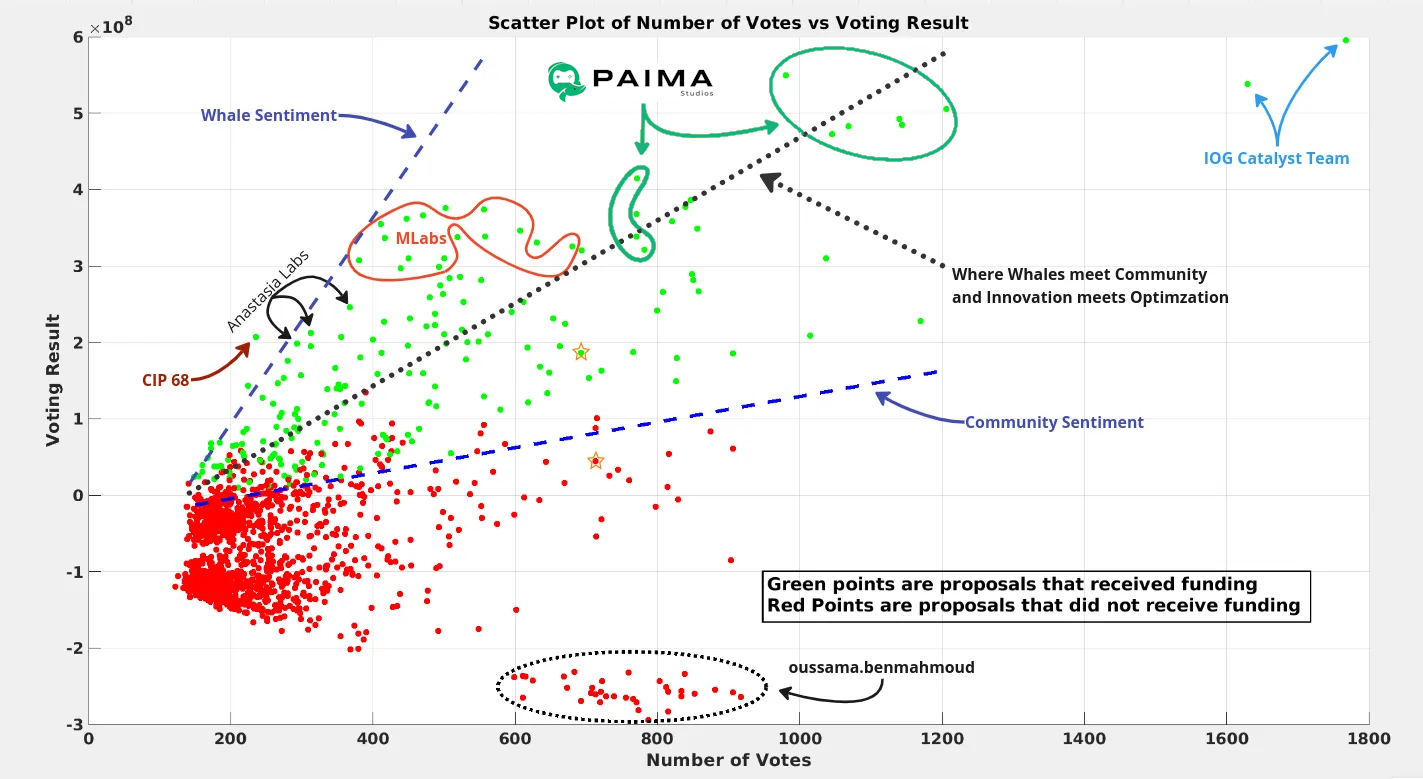 source: @Xerberus_io
source: @Xerberus_io
How will this benefit Cardano?
Paima Engine is free to use for projects that are either non-commercial or open source. For closed source applications, projects currently have the choice between paying a royalty on revenue beyond a certain value or integrating a future Paima ecosystem token. If these applications integrate Cardano support into their experience, they are eligible for up to a 41% discount in royalty payments for their game.
What will be accomplished with the grants?
Grant funding will be used to integrate cutting edge functionality into Paima Engine such as:
- Building a ZK layer for games that want private information or the ability to prove world state, including support for Mina - the world’s largest fully ZK-ified blockchain
- Building an AI layer leveraging Shinkai Network so that games can have NPCs or game logic powered by AI without compromising on decentralization
- Integrating support for DA (Data Availability) layers such as Avail built by Polygon co-founder to support data-heavy use-cases without compromising on decentralization
- Integrating more of the world’s top game engines with Paima such as Unreal Engine and Godot (on top of its existing integration with many engines)
- Improvements to its account-abstraction layer to allow players to access games from a variety of systems such as Apple FaceID to avoid the need for users to create web3 wallets if they don’t have one, as well better support for crypto-native users so they can play without having to sign a transaction for every in-game action
- Creating many new tools for Paima developers and the creation of more templates to help developers get started with Paima
These ambitious projects will help connect Paima to multiple billion-dollar projects, achieving Paima’s goal of building a modular gaming stack that empowers developers to build games that integrate exactly the tools and ecosystems they need
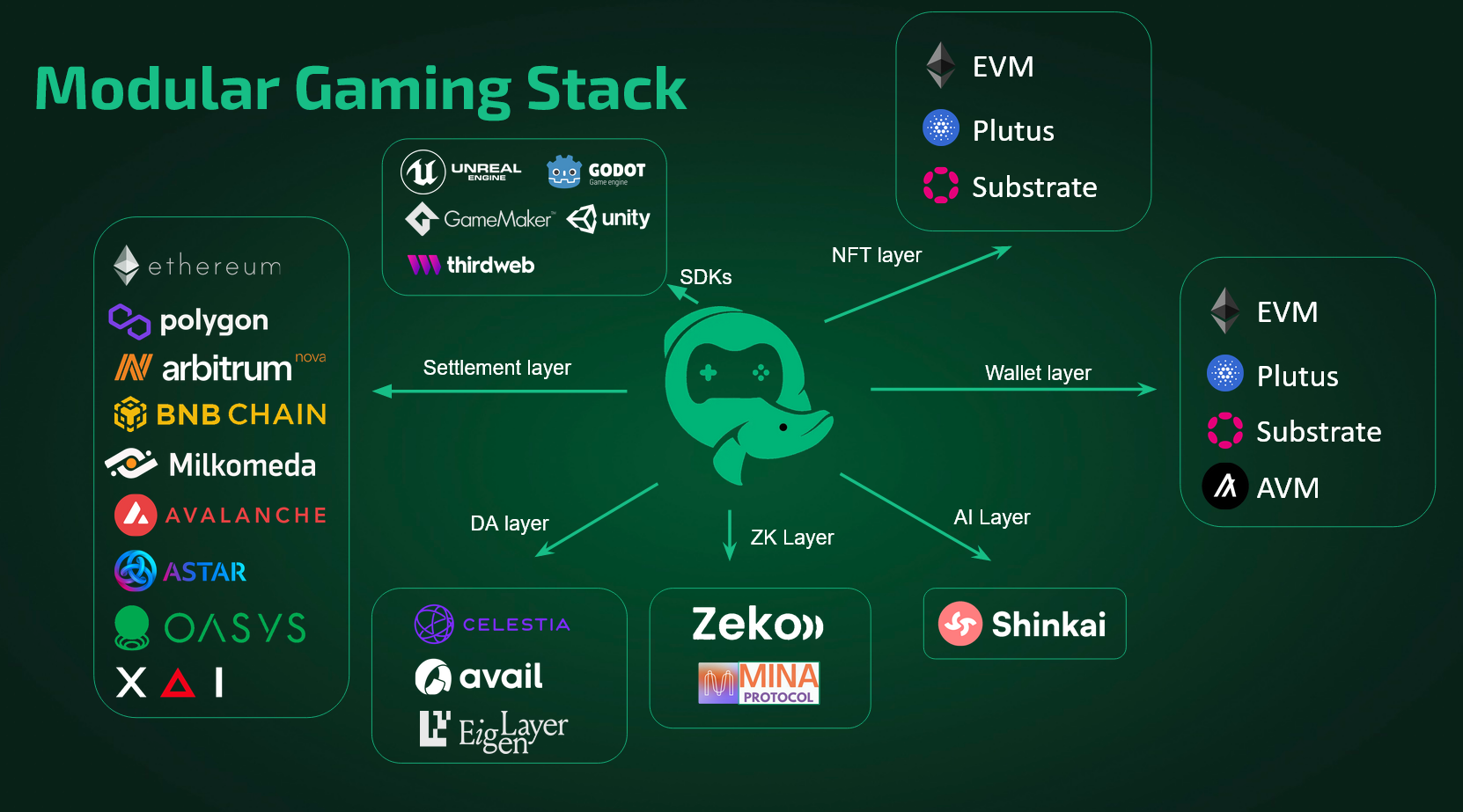
How can I use Paima?
Paima is already available today with many games being built with it. In fact, through this grant proposal, we'd like to announce you can now find Paima's code public on Github with the links below!
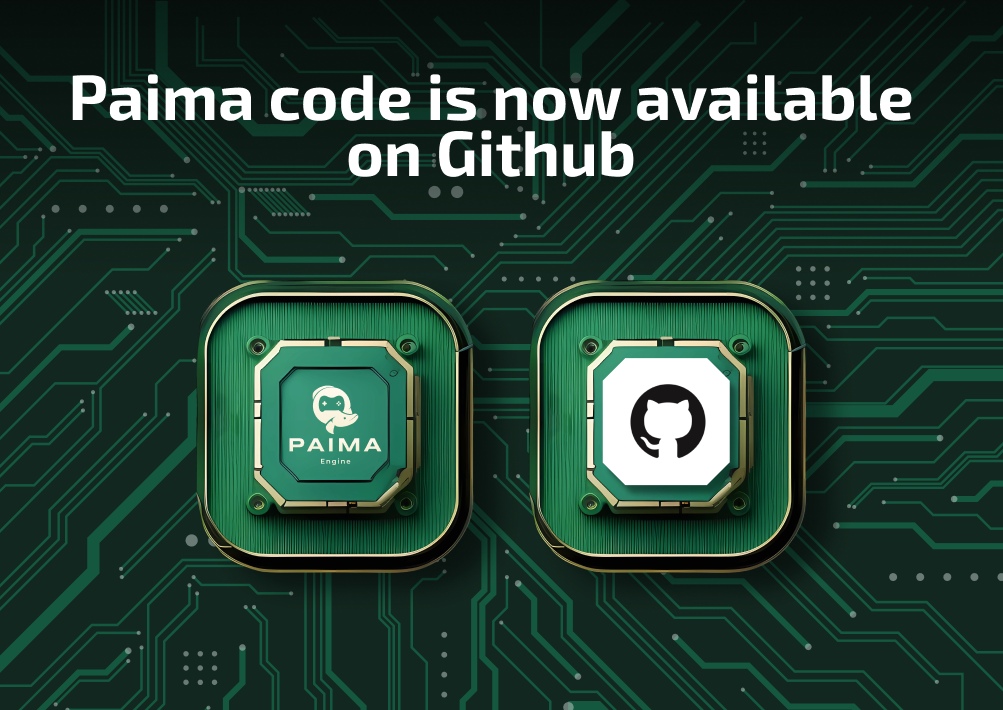
You can find more information to get started below:
- Paima Engine codebase: https://github.com/PaimaStudios/paima-engine
- Paima documentation: https://docs.paimastudios.com/
- Paima chess template: https://github.com/PaimaStudios/paima-game-templates/tree/main/chess
- Paima NPM package: https://www.npmjs.com/package/@paima/sdk
You can also learn more from our social media:
- Youtube: https://www.youtube.com/@paimastudios
- Discord: http://discord.gg/jZ59ArVaxv
- Reddit: https://reddit.com/r/paima
- Twitter: https://twitter.com/PaimaStudios
Want to work together? Do not hesitate to reach out to us through our contact page: https://paimastudios.com/